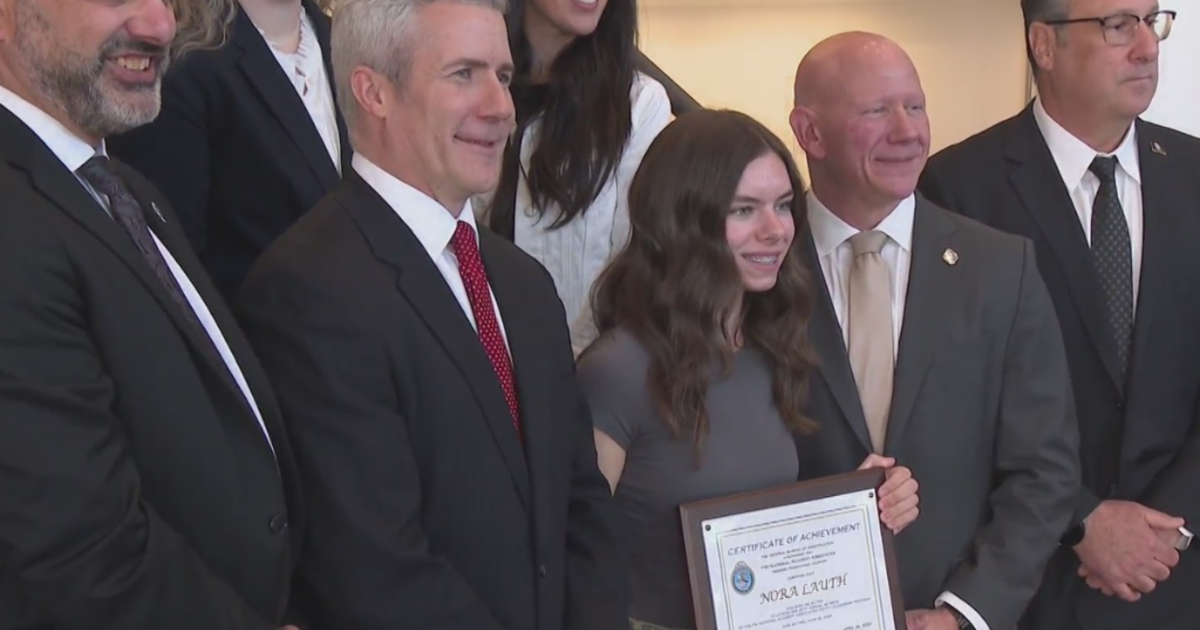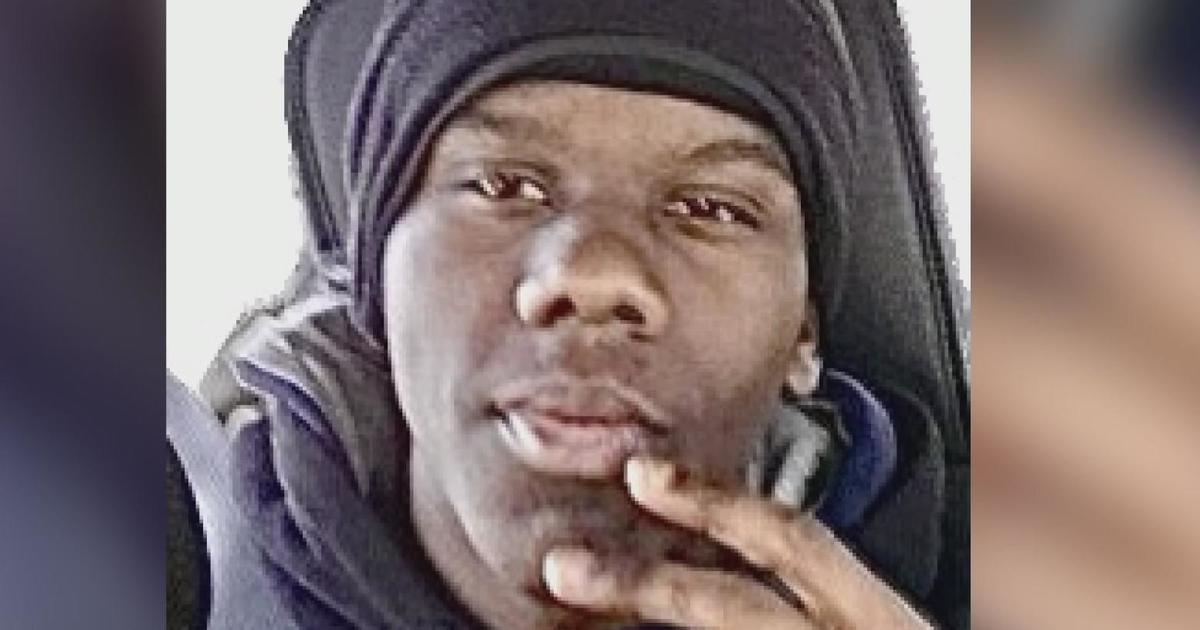Pittsburgh-area man shares his experience with anorexia to help others with eating disorders
PITTSBURGH (KDKA) -- Nine percent of Americans will have an eating disorder in their lifetime, but few talk about it because of the stigma of mental illness. That's even harder for men because so often eating disorders are associated with females.
A local young man is sharing his experience with anorexia to help others with eating disorders. You'd never know from seeing Jake Noschese, a strong and healthy 23-year-old from the North Hills, that just a few years ago, an eating disorder nearly killed him.
When he went to college four years ago, he developed anorexia nervosa – an eating disorder that causes someone to have a distorted perception of weight.
"I think my lowest weight was 112 pounds, and I'm 250 pounds right now," Jake said.
Jake got so undernourished and his heart rate so low, he could have died. Thankfully, his parents got him to his doctor who immediately hospitalized him.
His mother, Cathy Noschese, who works at KDKA-TV, said, "It is a life-threatening mental illness. Jake could have died if we didn't intervene or if the doctor didn't put him in the hospital. So don't give up. Look for all the signs."
Jake showed many of the typical signs of anorexia including severely restricting how much food is eaten, excessively exercising, bingeing and vomiting, not wanting to eat in public and covering up in loose clothes.
Jake said, "To me, I felt fine. I felt normal – like I was just like normal to myself."
Researchers say when the body is in starvation mode, it affects the brain and denial is common. Jake's mom says she wishes she'd known the family could have had him involuntarily committed to the hospital earlier, even though he was a legal adult.
"Don't give up the fight," Cathy said. "You're going to have to -- if they're not to the point where they will willingly go, then you might have to intervene."
KDKA-TV's Kristine Sorensen, who interviewed Jake and Cathy, said about getting him to the doctor and hospital, "It looks like that was the best thing that could have happened, right?"
"Yeah. They saved his life," Cathy replied.
Jake spent two weeks at UPMC Presbyterian Hospital and six more weeks at UPMC Western Psychiatric Hospital for medical re-feeding and therapy.
He then spent three months at McCallum Place Eating Disorder Center in Missouri because there were no residential programs for eating disorders in Pennsylvania that took men.
"It's a critical time because relapse is really high," Cathy said, "so you really need to be able to do that, and it's a shame to have to go out of state because now, he's at one of the scariest, most vulnerable times in his life, and he has to go how many states away?"
Kristine asked Jake, "Tell me what that's like when you're deciding what to eat, when to eat. Is it still kind of a mental thing for you?"
He replied, "It's freeing once you recover. It's definitely life-changing."
Dr. Jennifer Beckjord and Dr. Rachel Kolko Conlon, both specialists with the UPMC Center for Eating Disorders, say the number of boys and men with eating disorders is increasing because of more cases related to the pandemic shutdowns and because better screening is detecting it in more males.
Still, more needs to be done to inform medical providers, coaches and families on what to look for in boys and men.
"They can go undetected and undiagnosed for quite some time related to providers who may not have specialized background or education in eating disorders and maybe are not aware of what to look out for," Dr. Beckjord said.
By the time men with eating disorder symptoms get help, their cases tend to be more severe. One thing holding some men back from treatment is the perception that only women have eating disorders.
"To detect an eating disorder, either one has to recognize it in oneself, and if everything you're seeing about eating disorders has to do with let's say women on the picture of the screen or the ad on TV, you may not register that that is something that applies to you too," Dr. Conlon said.
Jake said, "I do believe there's definitely more of a stigma and anorexia isn't as noticeable in a man because men are generally bigger."
After his treatment, Jake was a peer specialist, helping other young people with mental health challenges and is now studying to become a therapist so he can continue to help others with eating disorders.
"The power of a peer is somebody who has gone through what you're going through, so they can be sort of like a mentor and a guide that almost like shared trauma and help somebody and fully empathize with them about their experience."
Jake hopes by opening up about his eating disorder, others will too, and more people who need help will get it.
Kristine asked Jake, "If someone is listening right now, and they might be underweight but they don't see it themselves, and their friends and family are saying, 'You need to get help,' what would you say to that person?"
Jake replied, "I would say, don't be ashamed or nervous. I think the sooner you start, the sooner you can change your life for the better."
You can get help in many ways. You can start by calling the hotline for the National Alliance for Eating Disorders at 1-866-662-1235. They have therapists answering the phone. You can also get directed to a local professional on their website.
Some of the programs they recommend include UPMC Center for Eating Disorders and The Emily Program.
You can also start with your doctor or pediatrician for kids and adolescents, though most are not trained specifically in identifying eating disorders so for a specialist, experts recommend you call an eating disorder program or specialist.




